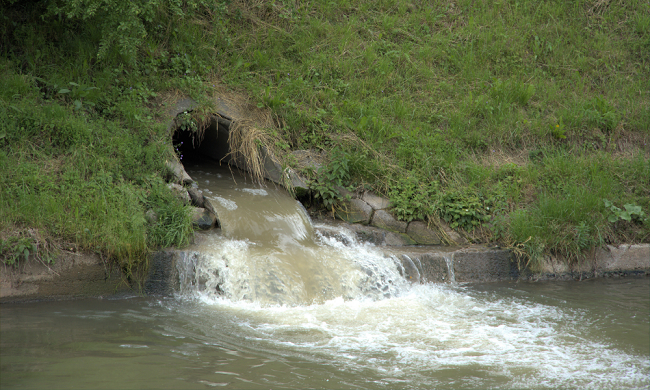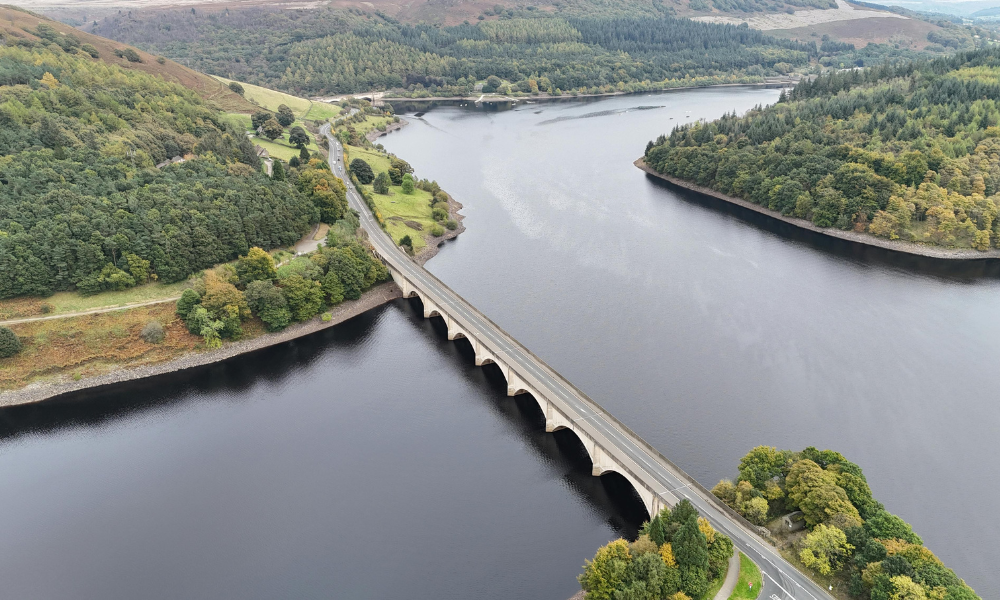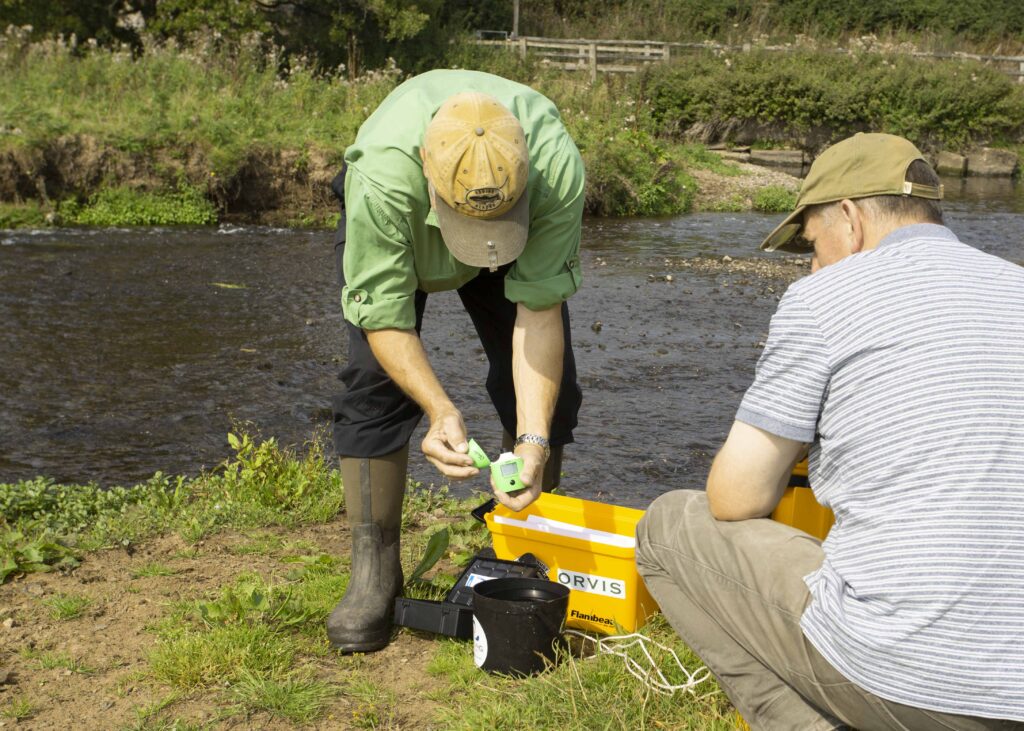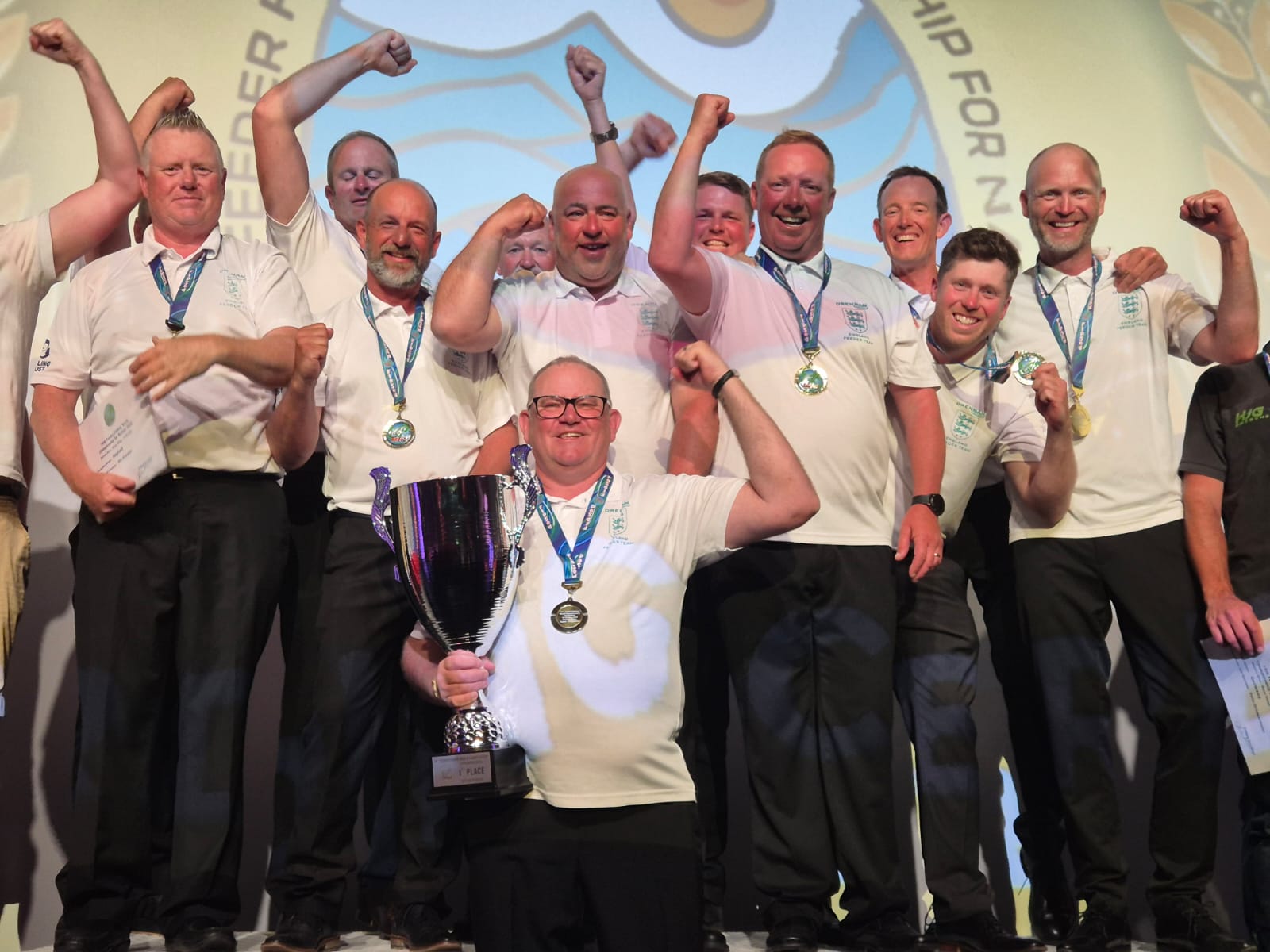
Lines On The Water
We want a water industry fit for purpose
Anglers have known for years what the public and politicians are finally acknowledging, that something is very wrong with many of our rivers and that much of the blame lies at the door of the nation’s failing water industry. An industry that was debt free when privatised in 1989 is now crippled with debt and operating with a creaking and leaking infrastructure that simply cannot cope with the demands of a growing population and the challenges of a rapidly changing climate.
And the result is there for all to see. Last year storm overflows spilled untreated sewage into our rivers, streams, lakes and seas a staggering 450,398 times for a total of 3.61 million hours at an average of 32 spills per-overflow. Despite all the promises this represents only a small reduction – some 2.9% – from the equally shameful 2023 figures. No wonder only 16% of water bodies assessed under the Water Framework Directive (WFD) meet good ecological standards, and none meet good chemical standards. To meet the WFD commitments, all water bodies should meet good standards by 2027. They will fail to do so by a country mile.

Storm overflows spilled untreated sewage into our rivers over 450,000 times last year
Independent Water Commission
On coming to power in 2024, the new government appointed Sir Jon Cunliffe, former Deputy Governor of the Bank of England, to conduct an independent review into the water sector. The review covers both water companies and their regulators, and how well the environment is being safeguarded. This independent Water Commission is due to make its first recommendations in June 2025. It could lead to the biggest shake-up of the water sector since privatisation. What the government chooses to do next will be a key test of their commitment to sort out the water companies and clean up our rivers, lakes, and seas. That is why this matters to every angler in the country and why we’ve have been spending so much time and energy in seeking to influence the Commission to recommend reforms that we will deliver maximum benefit to fish, fishing and the environment.
The Angling Trust has now published the comprehensive and detailed submission it sent to the Independent Water Commission last month outlining reforms needed to make this failing water industry fit for purpose.
We believe water companies must be better governed, contribute more to environmental protection, and deliver wider public and economic benefits. That includes reforms in how investment in our sewage and water networks is planned and delivered. We also want stronger regulations to deliver better environmental and public outcomes. And the needs of the environment — including the protection of fish — must be central to water management.
Since privatisation, water companies have been largely left to get on with it. OFWAT, the economic regulator, has often prioritised low bills over necessary investment, delaying upgrades and failing to meet growing demand. The Environment Agency has also failed to hold companies accountable for pollution, a long-standing concern for anglers.
At the heart of this problem is society’s inability — through Parliament and Government — to hold water companies properly to account or to set clear priorities for the environment and consumers beyond serving their shareholders and executive bonus packages.
A Public Water Commissioner in Every Area
In our submission, we are calling for change. We want water companies to be more accountable and transparent. No more backroom deals and cover-ups. That means greater democratic oversight. We propose the creation of 11 powerful Water Commissioners, one for each regional water company area, appointed by government and reporting to parliament. Their job would be to hold companies to account on a week by week basis. They would have wide ranging powers to act as champions of the customers and the environment, to hold water company executives to account, attend board meetings, demand information, instigate enquires and to act as a consumer ombudsman. Where appropriate they would be whistle blowers and call in the regulators at an early stage if matters require it. Such a model would deliver far greater transparency and accountability than is the case at present and provide Parliament and the Environment Secretary with greater influence over the management of a vital public service.
Local knowledge and expertise is vital and should be made available directly to the Commissioners. That’s why we are recommending that at a regional level an expert panel of experienced and knowledgeable individuals with a balance of experience in water, environmental and consumer matters would work with their Commissioner to provide a local focus and ensure better oversight and public engagement. The local catchment partnerships, rivers groups and other stakeholders including wildlife and water recreational groups, along with consumer advocates, would have a role in nominating a proportion of the membership together with the Environment Agency and Local Authorities.
Fix the Pipes
Delivering clean water fit for humans to drink and for fish and wildlife to live in requires investment in water and sewage infrastructure. Most companies don’t even fully understand the state of their assets, let alone maintain or upgrade them fast enough. And when they do put forward improvement plans all too often they are actively blocked by OFWAT. This has to change.
In sectors like transport or energy, long-term planning falls to the National Infrastructure Commission (NIC). We believe the NIC should treat water as a national infrastructure priority, with longer-term investment planning beyond the current five-year cycles.
There is no better example of the failure of the water sector than the story of reservoirs — a failure by governments, regulators and water companies to ensure a secure supply that also protects the environment. Between 1850 and 1992, more than 200 reservoirs were built across Britain, often at a steady pace — even during wartime. In 1955 alone, seven reservoirs were opened. But since 1992, not a single large reservoir has been opened, despite our population growing by 10 million in that time.
And the story is just as bad when it comes to our sewage infrastructure. Sixty percent of our sewers haven’t been structurally upgraded since 1980. Our Broken Water Report (2021) revealed that replacement rates for wastewater infrastructure — including crucial main sewer systems — were just 0.05% per year — 10 times slower than the European average. This means sewers meant to last 100 years must survive 2,000. Only modest improvements have been made since. This dependence on ageing infrastructure, with no matching future investment, is why water quality in our rivers, lakes and seas is deteriorating. We cannot continue to rely on the brilliance of Victorian engineers to survive into the 21st century.

No reservoirs have been built in Britain for over 30 years – despite population increasing by 10 million
Stronger and Better Regulation
The role and duties of the regulators need to change and their performance and funding needs to increase. Their track record has seen more failure than success. It has never made sense to have two entirely separate main regulators overseeing the water industry since privatisation as it is impossible to separate the consequences of economic regulation from the impacts on the water environment.
The Angling Trust is calling for the creation of single water regulator and an end to the confusing and inefficient separation of the financial and environmental regulation of the industry with the Environment Agency setting standards and OFWAT often failing to approve the investment needed to achieve them. Under the Angling Trust proposals OFWAT would be abolished and the EA reformed and strengthened.
The new single water regulator would have direct responsibility for the entire industry covering supply, wastewater, drinking water standards, financial probity, prices and investment. Environmental standards should be set by a new Environmental Regulator (possibly a combined Environment Agency and Natural England), enshrined in law, and enforced in the industry by the new water regulator.
We have also called for an end to the absurdity which allows a developer to gain planning permission for building homes or factories that would overburden local sewage infrastructure and create ‘pollution by design’. The developers automatic ‘right to connect’ without contributing to asset upgrades has to stop.
Underpinning all of this, there has got to be an approach that first and foremost protects the environment and ensures there is enough water, of the right quality and quantity, to protect habitats and allow fish and wildlife to thrive.
Retain the Water Framework Directive
The health of our water environment is measured through the Water Framework Directive – a piece of European legislation that is now under threat. Political pressure is growing to move away from these regulations and in doing so weaken environmental standards that are supposed to protect our rivers.
We believe the WFD standards are largely sound, with some room for improvement, but certainly not replacement. The failure to achieve good ecological status lies firmly with successive governments and the regulators who have not delivered the actions and investment needed or clamped down hard enough on pollution from both agriculture and the water industry.
A recent damning High Court judgement — brought by Fish Legal on behalf of the Pickering Fishery Association — affirmed that the WFD should not be weakened or removed. Instead, it called for clear action plans for each water body to achieve the WFD’s environmental goals. This is the challenge that the Government should be rising to rather than ducking by watering down what few protections we have.
Water Monitoring
The EA’s current water monitoring system is now pitiful thanks to years of budget cuts. Between 2013 and 2019 the number of water sampling points fell by 40% and the number of samples taken by 45%. Almost half of all river catchments had no water samples taken by the EA in 2023. But the good news is that the gaps are being filled by citizen science monitoring including the Angling Trust’s own Water Quality Monitoring Network. We now have over 800 volunteers regularly monitoring around 200 rivers in England who have collected over 10,000 samples, checking on both phosphate and nitrate levels as well as ammonia. While levels of funding in some areas have begun to recover, (e.g. for formal farm and sewage treatment inspections), there remains a huge deficit. This is why we are calling for the EA to integrate citizen science data and angler led monitoring into their published data. There is a clear need for more simplification, greater explanation and more transparency. With the deployment of modern technologies, including AI, this should be feasible, cost effective, and allow for real time information on the threats to watercourses to be readily available to the public at large.

Our Water Quality Monitoring Network volunteers have collected over 10,000 samples in the past three years
Alongside an increase in monitoring must come an increase in enforcement. In 2021 the EA told its staff to not respond to “low impact” pollution events due to lack of resources and staff, without making any proper assessment of the incident. These have even included incidents of fish kills. We’ve had enough of serious pollution incidents being downgraded and the lack of prosecutions is shameful with 93% of cases recommended for prosecution downgraded between 2016 and 2020. This cannot be allowed to continue.
And Finally…
The Angling Trust wants to see a radically reformed water sector committed not only to the continued supply of safe clean water for us to drink but the need to ensure we have enough water for the future so that as the economy grows it does not put future supplies at risk. We want to see the environment properly protected for fish and wildlife and not trashed through taking too much water from our rivers and groundwater or using our rivers, lakes and seas as open sewers because of lack of investment in our sewage systems.
Let’s hope Sir Jon is listening!
You can read our full submission to the Water Commission here
Angling Trust calls for radical reforms to end sewage scandal
You might also like

Teaming up to halt spread of invasive floating pennywort

BLOG: Learning how to fish at Farnham Angling beginner…

BRONZE FOR ENGLAND VETERANS AS MASTERS AND DISABLED GO…

The Angling Mental Health Initiative’s Let’s Go Fishing events…

What to do if fish are gasping or spawning.…

WORLD CHAMPS GOLD FIRMLY IN THE SIGHTS OF ENGLAND…

We Fish as One supports Pride Month 2025

Sunglasses giant backs Angling Trust

Join in with the Check, Clean, Dry campaign this…

From TikTok to the classroom – Orchard School follows…

DRENNAN ENGLAND FEEDER TEAM WIN WORLD CHAMPS!

Family fishing at Aston Park Fisheries where have a…

Teaming up to halt spread of invasive floating pennywort

BLOG: Learning how to fish at Farnham Angling beginner…

BRONZE FOR ENGLAND VETERANS AS MASTERS AND DISABLED GO…

The Angling Mental Health Initiative’s Let’s Go Fishing events…

What to do if fish are gasping or spawning.…

WORLD CHAMPS GOLD FIRMLY IN THE SIGHTS OF ENGLAND…

We Fish as One supports Pride Month 2025

Sunglasses giant backs Angling Trust

Join in with the Check, Clean, Dry campaign this…

From TikTok to the classroom – Orchard School follows…

DRENNAN ENGLAND FEEDER TEAM WIN WORLD CHAMPS!

Family fishing at Aston Park Fisheries where have a…

Teaming up to halt spread of invasive floating pennywort

BLOG: Learning how to fish at Farnham Angling beginner…

BRONZE FOR ENGLAND VETERANS AS MASTERS AND DISABLED GO…

The Angling Mental Health Initiative’s Let’s Go Fishing events…

What to do if fish are gasping or spawning.…

WORLD CHAMPS GOLD FIRMLY IN THE SIGHTS OF ENGLAND…

We Fish as One supports Pride Month 2025

Sunglasses giant backs Angling Trust

Join in with the Check, Clean, Dry campaign this…

From TikTok to the classroom – Orchard School follows…

DRENNAN ENGLAND FEEDER TEAM WIN WORLD CHAMPS!









